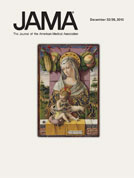 For those Retraction Watch readers who have been following the case of Anil Potti — who has now retracted four papers — Keith Baggerly’s name will likely be familiar. Baggerly is the bioinformatician at M.D. Anderson in Houston who has been publicly questioning, in letters, papers, and The Cancer Letter, work by Potti et. al.
For those Retraction Watch readers who have been following the case of Anil Potti — who has now retracted four papers — Keith Baggerly’s name will likely be familiar. Baggerly is the bioinformatician at M.D. Anderson in Houston who has been publicly questioning, in letters, papers, and The Cancer Letter, work by Potti et. al.
Yesterday, Baggerly gave a keynote at the Council of Science Editors meeting in Baltimore. It was a fascinating — and riveting — walk through how, after a group at M.D. Anderson asked him and his team to evaluate the Potti group’s tools for predicting whether given patients would respond to different chemotherapies, Baggerly’s group unraveled the Potti research.
In his talk, Baggerly demonstrated all of the mislabeling and other easily recognized errors his team found when they sifted through the raw data. And yet there were a number of wince-inducing moments in which Baggerly described the cool reception he had from several journals.
There have been a lot of calls recently that journals should require that authors deposit their data. There’s none more powerful than when they come at the end of a talk showing how that could have stopped a faulty clinical trial from ever starting.
Baggerly told Retraction Watch he just wants this story to get the widest attention possible, so he was glad to allow us to post his slides. They get appropriately technical, given the crowd, but it’s worth it. You can follow a very unofficial and rough transcript at this Twitter search, since Ivan live-tweeted the talk. Or just click over to the slideshow here.







